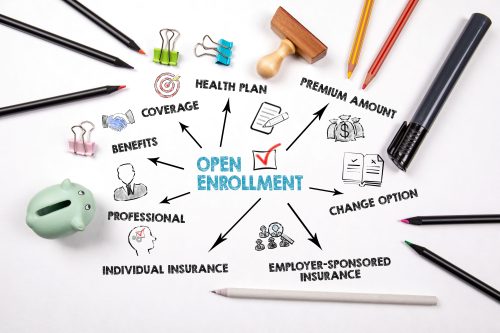COVID-19 has altered our lives in many ways. It’s forced many of us to work from home (for those lucky enough to still have jobs), and changed our daily routines. It’s also created anxiety about money for many individuals. For pre-retirees especially, it has generated fears about their ability to plan for retirement.
Fears about maintaining one’s financial feasibility at this difficult and unpredictable time can cause people to make serious mistakes when it comes to retirement planning. Here are some common mistakes we see that you should avoid when planning for retirement.
Mistake #1: Pulling Money Out of the Stock Market
The stock market has largely bounced back in recent months, but who knows how it will react to a second wave of COVID-19. For those who have saved enough money to retire in the not-too-distant future, pulling money out of a volatile stock market can be tempting. However, withdrawing money without a strategy can be a risky proposition. Think about those who cashed out when the Dow Jones dropped 8000 points between mid-February and mid-March, and then missed a comeback of almost equal proportion later in the spring. Here are some additional ideas on how to prepare your portfolio in a volatile market.
Mistake #2: Stopping Retirement Plan Contributions
Assuming you are still working and can afford to contribute to your retirement plan, we recommend you continue to do so. It is certainly understandable that you might want to hold off contributing to your retirement plan during COVID-19. Just as you may have thought about hoarding toilet paper or hand sanitizer, you may want to stockpile your cash and skip making these contributions. Don’t panic and don’t stop. Even individuals in their 60s and close to retirement should continue to contribute to their 401(k) and other employer-sponsored plans. There is time for these accounts to recover.
Mistake #3: Not Having an Emergency Fund
Not having a properly funded emergency account is a common mistake that individuals make at every age. The rule of thumb is that you should have sufficient funds to cover six months or more of unexpected living expenses – whether it is to cover the loss of a job or pay medical bills. What you don’t want to be forced to do is withdraw money from your retirement plan to cover an unexpected shortfall at this time.
Mistake #4: Assuming Previous Retirement Plan Assumptions Are No Longer Valid
If you developed and have been following a comprehensive financial plan that considered different scenarios and goals, the retirement plan you have in place is likely still relevant. It’s true that the economy and the market’s performance might set you back a couple of years, but don’t assume that what got you here can’t withstand this bump in the road. If you’re uncertain, revisit your financial plan and speak with an advisor to assess your situation and anticipated needs.
Mistake #5: Retiring Now if You’re Not Financially Ready to Retire
Some of the hardships faced at this time (e.g. you lost your job or your salary has been reduced), may convince those who are closing in on retirement to call it quits. This could lead you to experience a cash shortfall and force you to withdraw money from your retirement accounts earlier than you were planning to. Worse, you could be forced to sell at rock bottom prices, not receiving the full benefit of remaining properly invested. To retire or not to retire is the question, and this article may help you decide when planning for retirement.
For even more guidance on what not to do when planning for retirement, read 9 Common Mistakes to Avoid in Retirement.
Retirement planning is as much art as science. Speak with your financial advisor if you have any concerns about how this year’s market volatility or changes in your situation may be impacting your ability to retire when and how you want.
















